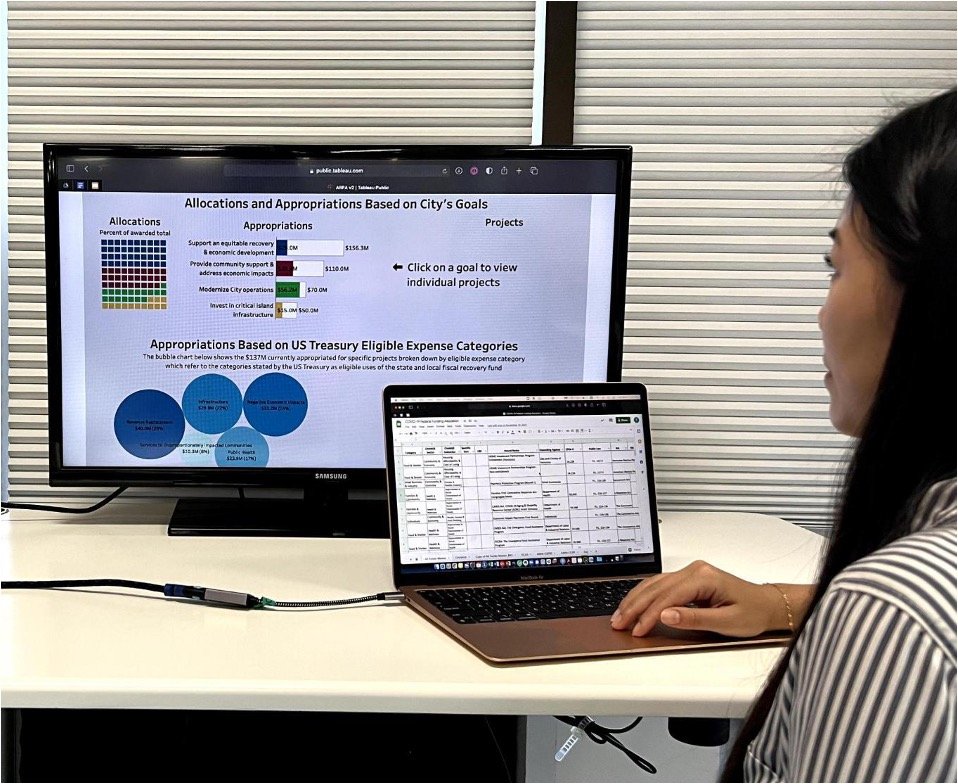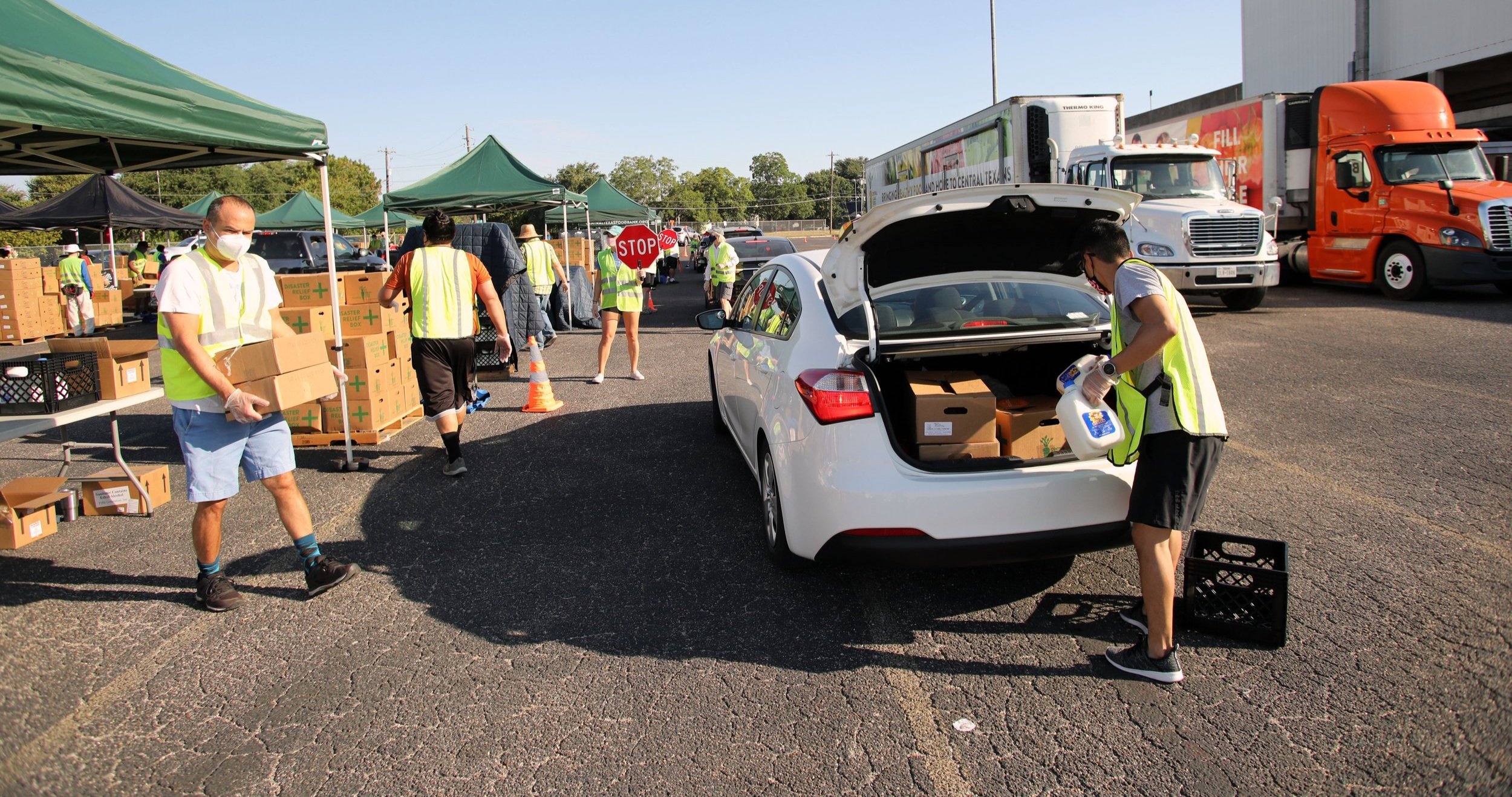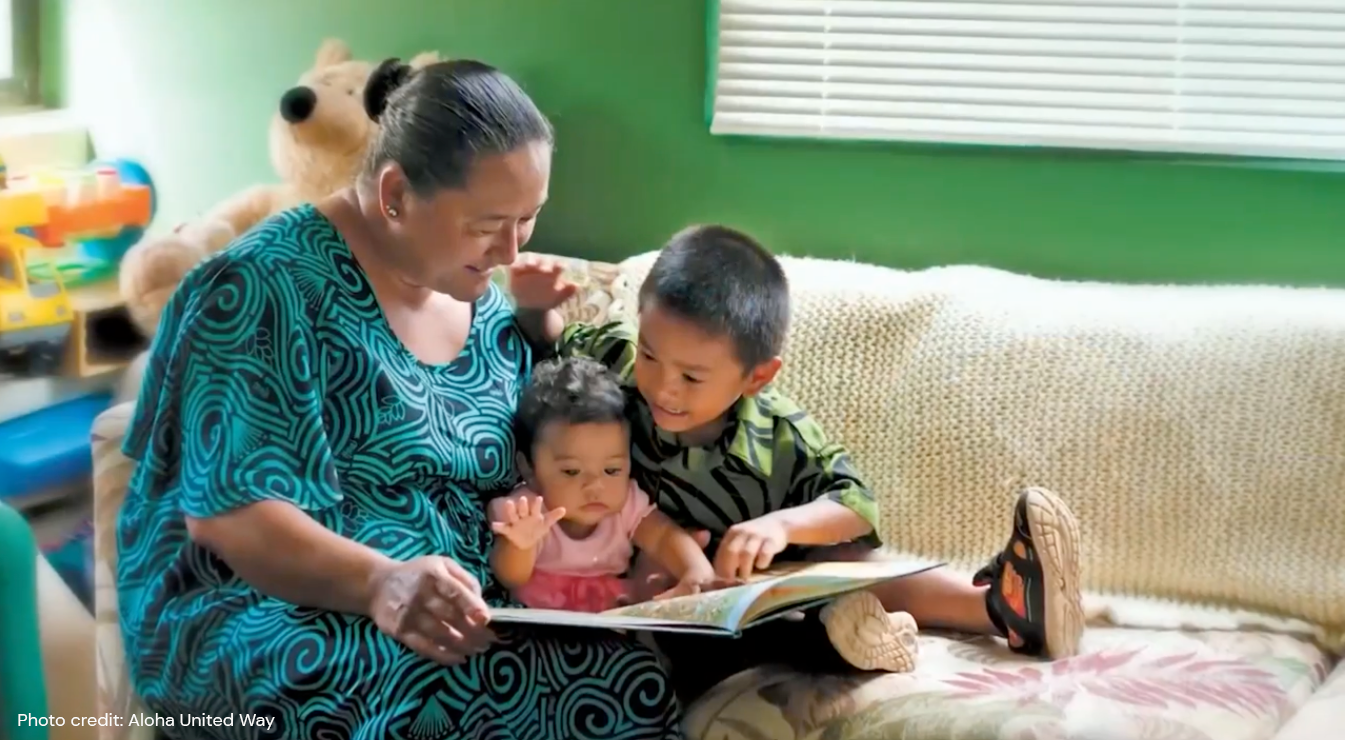News & Updates

Two Accessible Data Management Solutions For Non-Profits
Finding the information you need quickly is critical for any organization. A good data management system not only improves efficiency by eliminating manual processes, but also allows organizations to leverage and optimize the use of the data they collect to make decisions and take action. If your organization’s data management processes have become more of a cumbersome distraction to work around rather than a solution to streamline your operations, a data management system could be the solution. This guide will help you choose the right data management system for your organization’s needs.

Aligning Data to Outcomes: Our Approach to Developing a Thoughtful Data Strategy
Whether it's providing health services to vulnerable kupuna in their homes or supporting keiki in classrooms, every organization can benefit from a thoughtful data strategy. Developed thoughtfully, a data strategy weaves data into an organization’s overall strategy and can be key to advancing your organization's mission. It identifies what types of data are important to your organization and how you will capture and evaluate data on an ongoing basis to adapt your services or programs. Over time, this approach to data can even shape your organization’s values, culture, and future strategic direction.

Working With Census Data Today
Many of us look to “Census data” to better understand the circumstances of households and communities in Hawai‘i. In his work to provide research and analysis support to local organizations, Kendrick Leong, Hawai‘i Data Collaborative’s Research & Data Analysis Lead, often helps teams reference several different Census products depending upon their specific need. Following the onset of the pandemic, Kendrick has also helped organizations understand and navigate the limitations of Census data for understanding circumstances today. In this post, Kendrick distinguishes some of the more popular Census data products, runs through what you need to know to work with them, and lays out some important limitations of using Census data today.

A Simple Guide to Data Visualization for Non-Profits
Data visualization is becoming an increasingly popular tool for organizations to share and make sense of their data. To help those interested in getting started with data visualization, Hawai‘i Data Collaborative’s data visualization and analysis lead, Tiana Tran, has created this guide that outlines the main considerations when choosing a visualization tool, points to resources for learning how to use that tool, and shares Tiana’s favorite resources for learning how to create effective visualizations.

Understanding Household Need: Our Data Support Tools & Resources
At the Hawai‘i Data Collaborative, one of our core priorities is improving data accessibility. As our state works to recover from the far-reaching economic impacts of the COVID pandemic, those working to support Hawai‘i's households in need of assistance need access to relevant and timely data now more than ever. Recognizing this need, we have developed a suite of tools and resources that make data more accessible for communities, non-profits, policymakers and other working to support Hawai‘i's households struggling to get by.

Our Focus on Household Need Data in 2022
Over the past almost two years, we have frequently been asked to support another critical data challenge: how to identify and gain insight from data to understand households in need of assistance. Late last year, we interviewed multiple leaders of organizations supporting households in need to understand how readily they are able to gain insight from the data they collect while doing their work, and the extent to which they are able to effectively share data amongst peer organizations, government agencies and private sector funders to gain broader insights. We learned a lot from these discussions, inspiring us to make household need data our focus for 2022.

Hawai‘i Data Collaborative Launches New Tool: Hawai‘i Data Explorer
Data in Hawai‘i is hosted in numerous places that may not be easy to find, and Google searches often do not point us in the right direction. In response to this need, we have developed the Hawai‘i Data Explorer, a tool to connect users with publicly available data on Hawai‘i household well-being.

Hawai‘i Data Collaborative at the 16th Hawai‘i Book & Music Festival
Nick Redding, Executive Director of the Hawai‘i Data Collaborative (HDC), was invited to join two panels at the 16th Annual Hawai‘i Book and Music Festival.
The first panel took place on October 5th, and included experts in healthcare, public health, and data to discuss Lessons for Future Pandemics. The second panel took place on October 28th, and included data experts to discuss Big Data Visualization.

Open Access to Hawaii.PolicyMap Renewed for Another Year
We are pleased to announce that open access to Hawaii.PolicyMap will continue to be available for another year, thanks to the generosity of The Harry & Jeanette Weinberg Foundation, Hawai‘i Energy, and Hawai‘i State Department of Health, who have come alongside the Hawai‘i Data Collaborative to sponsor the Hawaii.PolicyMap Enterprise License.

Hawai‘i Community Foundation and Hawai‘i Data Collaborative Partner on the CHANGE Framework
The Hawai‘i Community Foundation (HCF) is working to disrupt the systems that have been driving inequities across the state using a data-driven approach through its CHANGE Framework, making robust data, analysis and reporting a fundamental component of the CHANGE Initiative. To support this effort, HCF and the Hawai‘i Data Collaborative (HDC) have partnered to add Emma Kern, CHANGE Research Specialist, to the HDC team.

Aloha United Way and Hawai‘i Data Collaborative Launch Enhanced 211 Dashboard
Aloha United Way (AUW), in partnership with Hawai‘i Data Collaborative, upgraded the data system supporting the 211 Program to ensure the data collected are accurate, and can be reliably leveraged to understand the areas in which Hawai‘i residents are struggling with in near real-time. With the upgrade complete and the data platform stabilized, we are excited to announce the launch of an enhanced AUW 211 Dashboard.

ALICE Conversation Series: Our Friends, Neighbors and ‘Ohana
On June 24, 2021, Aloha United Way (AUW) kicked off their ALICE Conversation Series with the first event “ALICE - Our Friends, Neighbors and ‘Ohana.” AUW’s community partners shared how they’re working to support ALICE, including Feed the Hunger Fund, Kokua Kalihi Valley, Parents and Children Together, and Waikiki Community Center. Nick Redding, Executive Director of Hawai‘i Data Collaborative (HDC), was also invited to present HDC’s work of filling timely data gaps so that those working to help ALICE can keep pace with the needs of ALICE as it evolves over time.

Employment Opportunity with the Hawai‘i Data Collaborative: CHANGE Research Specialist
This position will support a partnership between the Hawai‘i Data Collaborative and the Hawai‘i Community Foundation to compile existing data sources and develop new data sources relevant to the CHANGE Framework.

How to Make the Most of Our Federal Relief Funds
It is often said that our values are reflected in what we budget, what we spend our money on. The COVID-19 pandemic has been the ultimate test of that well-known adage. With overwhelming need in every corner of our communities and each sector of our economy, there was no shortage of what to fund — but with so little time, the challenge was how to get the funds out quickly to those who needed them most.

A Report on Hawai‘i’s Data & Evidence Landscape
We are excited to share a report that summarizes what the Hawai‘i Data Collaborative has learned directly, and indirectly through interviews with key stakeholders, about the the data landscape in Hawai‘i, offering a guide to moving forward. Our sincere hope is that this report catalyzes the collective and collaborative effort needed to foster a thriving data culture, ready to confront the challenges of 2021 and beyond.

Behind the Data Scenes: Partnering to Build a Robust 211 Data Resource
Shortly after the first case of coronavirus in Hawai‘i was confirmed, and residents were unsure how public health mitigation efforts to limit the spread would impact our local economy, our team focused on addressing the need for timely data in order to understand how households would be impacted and what support they would need.
Aloha United Way’s (AUW) 211 Helpline appeared to be a good place for us to start. AUW welcomed us to peer behind the curtain and gain a better understanding of the 211 system. What we observed was a system containing several fragmented components, fraught with unreliable data flows and prone to human error, immediately raising data integrity concerns. Though we started with an interest in 211 data as a timely data source, if the system supporting the data wasn’t reliable, then how reliable and useful would the data itself be? It was clear that the first challenge to address was upgrading the 211 system.

TRUE Insight: Tableau Success Stories in Hawai‘i
Insight from data has made an impactful difference in Hawai‘i’s response to COVID.
On January 27, 2021, Deena Tearney, CEO of Pacific Point, moderated a panel that discussed how:
Successful response requires everyone to come together and rapidly innovate in times of crisis
Data, data visualizations, and data integration with other system increases decision making value
You can create and foster a data culture at your organization
Panelists included Jeremy Blaney of Tableau; Erin Hughey of Pacific Disaster Center; and Nick Redding of the Hawai‘i Data Collaborative.

The Hawai‘i Variable: COVID-19 Dashboards Workshop
On January 21, 2021, Civil Beat's data reporter, Yoohyun Jung moderated a panel of experts as they explored Hawai‘i's COVID-19 data dashboards during an in-depth workshop and discussion.
Panelists included:
Nick Redding, Hawai‘i Data Collaborative
Joshua Quint, Hawai‘i Department of Health, Disease Outbreak Control Division (DOCD)
Niea Gardner, Hawai‘i Emergency Management Agency (HIEMA)
Victoria Fan, University of Hawai‘i at Manoa and Hawai‘i Pandemic Applied Modeling Work Group (HiPAM)
Panelists demonstrated how to navigate Hawai‘i’s many COVID-19 data dashboards and figure out how to extract the most important, and interesting, information out of them.

Tracking the Coronavirus and the Federal Funding
In Hawai‘i Magazine’s “Hawai‘i Gives Back” Series, Hawai‘i Data Collaborative’s (HDC) Nick Redding is featured in “Tracking the Coronavirus and the Federal Funding” contributed by Hawai‘i Community Foundation, where he discussed:
Why HDC works to make data accessible;
How COVID created a shock to the system that has helped people see the value in data;
What we should be doing now to prepare for the next disruption.

It Takes You and the System: From Data-Driven Mindset to Data-Driven Culture
As we think about ourselves using a data-driven mindset at work, it is important to note that our environment—in particular, our organizations—shape our effectiveness in being able to truly leverage this mindset. Imagine an organization where leaders believe the best decisions are rooted in data and so they model data-driven decision-making every chance they get. They challenge their teams to support ideas with data. Embedded in the organization is the belief that data is incredibly valuable and so, accessibility to data is prioritized through processes, technology, and infrastructure. Even more, the organization recognizes that if it expects everyone to make data-driven decisions, it must build data literacy skills through trainings and workshops so that employees feel competent and empowered to use data to tell stories, solve problems, and make decisions. Intriguing, right?
